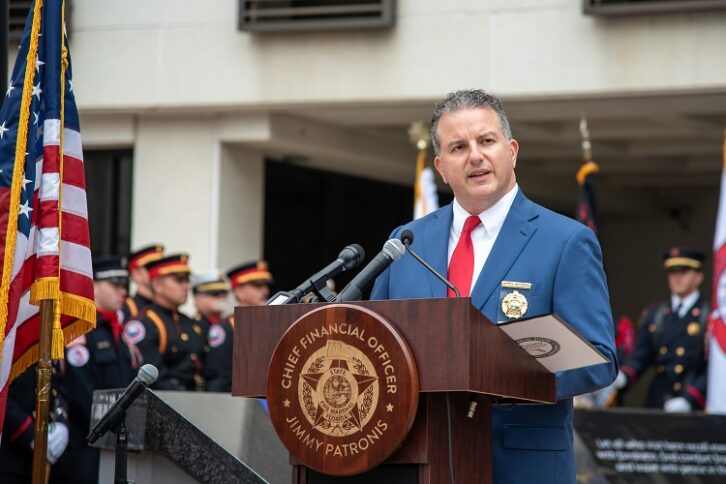
The chief financial officer of the state of Florida wants the FCC to “immediately halt any further utilization” of Wireless Emergency Alerts on a national level.
Jimmy Patronis, who also serves as the state’s fire marshal, addressed his letter to FCC Chairwoman Jessica Rosenworcel. He took issue with use of the WEA platform to send the nationwide emergency text message to cellphones and wireless devices in early October:
“What was the point of that? Was it really necessary? The federal government scared about 70% of Americans with that alert, and in my opinion, this was government overreach at its finest,” Patronis wrote in the letter. (Read it here.)
The FCC and FEMA conducted the national tests of WEA and EAS public warning systems on Oct. 4.
Patronis in his letter admonished the FCC for directly reaching out to citizens on their electronic devices. “I don’t like systems where the federal government can access Americans directly to their smartphones. Frankly, I don’t like the idea of any administration (regardless of party) having the ability to DM Americans without their permission,” Patronis wrote.
Patronis, a Republican, has served in Florida’s cabinet since 2017. According to his bio, Patronis is a fourth-generation Floridian who previously worked in his family’s restaurant business. He is a former member of the state legislature.
His letter continued: “Trust in our nation’s ruling class is at an all-time low and for good reason. In a time when the first and second branches of government should be reining in Big Tech and protecting the privacy of American citizens, Big Tech and Big Government seem to be indistinguishable. … In my opinion, there is absolutely zero reason that the federal government needs to notify millions of Americans at the exact same moment. It’s unreasonable that people on the West Coast need to be alerted about something going on in the East Coast,” he said.
Patronis says emergency alerting should be left to each state to handle. “State emergency management directors are more than capable of protecting and alerting their own citizens during emergencies without the federal government needlessly getting in the way.”
He concludes his letter: “I urge you as the chairwoman of the FCC and a fellow taxpayer to immediately halt any further utilization of the National Wireless Emergency Alert System. Thank you for your attention to this matter. I look forward to your prompt response.”
Rosenworcel has sought to expand the capabilities of WEA by making them more accessible to people who don’t speak English or Spanish. In October the FCC adopted rules expanding the language capabilities of WEA by adding more bilingual alerts.
Replying on Friday to a Radio World request for comment, an FCC spokesperson wrote by email: “Life-saving emergency alert systems are the law, as is the requirement that FEMA conduct periodic nationwide tests, and they are responsible for setting the date and time of these tests. The FCC strongly supports emergency alerting, which save lives in communities across the country.”
The commission on its website describes Wireless Emergency Alerts as “an essential part of America’s emergency preparedness. Since its launch in 2012, the WEA system has been used more than 84,000 times to warn the public about dangerous weather, missing children and other critical situations—all through alerts on compatible cell phones and other mobile devices.” It notes that wireless companies volunteer to participate and that it is the result of a public/private partnership between the Federal Emergency Management Agency, the FCC and the wireless industry.
The letter produced some eyerolling on an EAS listserv maintained by the Society of Broadcast Engineers.
“I guess he is just unaware that we’ve had national alerting for at least 70 years, beginning with CONELRAD,” one engineer wrote. Another called his letter “political pandering … no, it’s scaremongering and nothing more.”
This article originally appeared on TV Tech sister brand Radio World.







